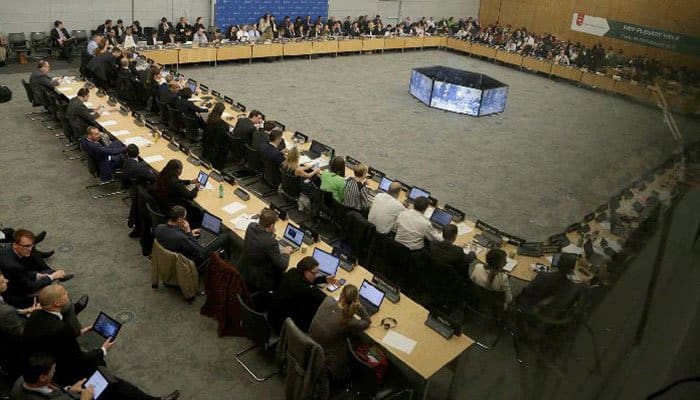PARIS – Pakistan has apparently narrowly escaped a US-led bid to put Pakistan on a terror-financing watchlist, maintained by the Financial Action Task Force (FATF).
Six-day long plenary session of the international watchdog concluded on Friday in Paris, releasing a grey list featuring nine countries – Ethiopia, Yemen, Iraq, Syria, Serbia, Sri Lanka, Trinidad and Tabago, Vanuatu and Tunisia – with strategic deficiencies posing a risk to the international financial system.
However, there was no mention of Pakistan in the list of “Jurisdictions with strategic anti-money laundering / countering the financing of terrorism deficiencies for which they have developed an action plan with the FATF”.
Earlier in the day reports emerged that Pakistan had been placed on the list, while the FATF issued an official statement with no mention of Pakistan.
According to experts, Pakistan will have to make efforts to curb money-laundering, besides taking other measures to curb alleged terror financing as it could be put on the list in June this year.
It is to mention here that the US presented a resolution, which was backed by Germany, France, Britain, to put Pakistan on FATF’s grey list by ignoring its efforts to weed out terror financing.
The reports claimed that FATF has finally decided to place Pakistan on terror-financing watchlist after all-weather friend China, Saudi Arabia and Russia withdrew their objections over the resolution. Turkey was the only country, which did not withdraw its support at this forum.
Later in the evening, Dr Mohammad Faisal, addressing a weekly media briefing, on Friday said that the US and UK jointly submitted a letter to the FATF nominating Pakistan for placement in the “grey list”.
“France and Germany subsequently joined this nomination. Pakistan has serious concerns over and objections to the introduction of this new “nomination” procedure which is unprecedented and in clear violation of established rules/practices of FATF ,” The Nation quoated Faisal.
Faisal said most of the concerns “raised by the US regarding deficiencies in our CFT/AML (Combating the Financing of Terrorism and Anti-Money Laundering) regime had already been addressed in 2015 when Pakistan got an exit from the “grey list”.
He said in 2009 FATF identified “strategic deficiencies” in Pakistan’s AML/CFT regime. “To overcome these deficiencies, Pakistan agreed to implement FAFT’s Action Plan. As a consequence, the State Bank of Pakistan introduced a comprehensive set of new rules and guidelines on CFT/AML,” he said.
In June 2015, the spokesperson said, Pakistan was removed from the list after strenuous efforts to implement the Action Plan.
Saying, Pakistan and the US were trying to find common grounds, Faisal said: “So far, we have not failed. We are against any country-specific sanctions,” he added.
Another official from foreign office Foreign Minister Khawaja Asif will expedite efforts to woo the friendly countries to get their support in the trouble situation.
Meanwhile, Adviser to Prime Minister on finance Miftah Ismail said the FATF decision will pose no threat to the economy of Pakistan. “Nothing is going happen before June. It is not a big issue,” he said.
Defence Minister Khurram Dastgir Khan tweeted: “We have officially complained to FATF on Indian media speculations which they claim are on basis of information provided by top Indian government sources.”
He added: “The decision in this regard will be announced in June 2018. We cannot comment on the matter. Pakistan has not been officially informed about any decision by FATF . The proceedings of FATF are confidential and hence it is strictly forbidden by FATF to comment.”













